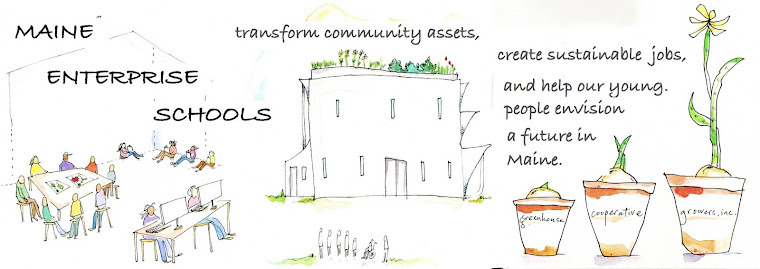On behalf of our Board, deepest thanks to everyone who came to Frontier last night - and to those who could not make it but sent good wishes! We had a packed house - 85 or so people from all walks of life gathering to both celebrate that we've gotten this far and help us get ready for a year of very hard work - which via a quote from Wendell Berry was one of the themes of the evening:
"Farming is a hard life. That's what these rural sociologists were talking about in the start. It's a hard life, therefore nobody ought to live it. What a remarkable conclusion. There are several steps that are left out. What causes the difficulty? Does freedom come out of it? Does family pride come with it, family coherence? Does some idea of community come with it? Does some kind of idea of stewardship, of essential, irreplaceable, indispensable stewardship, does that come with it? Do ideas of affection or love or loyalty or fidelity come with it? The basic question is, how hard would you be willing to work in order to be free?”
In our model, we don't all have to be farmers to be free, but we do all have to put in the hard work to make sure that we bring that "essential, irreplaceable, indispensable stewardship" to our farms, our schools, our businesses, and our human and natural resources.
Special thanks to: Peter Sterling for coordinating the food and event set-up; Lily Montgomery (and her gang of friends!) for reprising the dumpling-fest from earlier this summer; Malia Haddock of 3Perro Design for artwork; Gil and Katie at Frontier for the warmth and hospitality; and the good folks at Rosemont Markets, Scarlet Begonias, Old World Deli, Little Dog Cafe and Gritty McDuff's for generous donations of food and drink.
Among other things, we handed out folders with 10 "white papers" that describe different aspects of the MFES model; they'll be available as PDFs on our new website when that goes live in the next couple weeks. One of those is a very detailed timeline; below is an abbreviated version.
Sept/Oct: Form formal design teams in Lewiston/Auburn, MidCoast, and Cumberland/
North Yarmouth
Launch Business Planning Series
Nov/Dec: Develop specific partnerships, proposals, budgets for specific sites
Begin Community Engagement process in each region
Jan/Feb: Formal presentations to school committees/select boards, signed MOUs
Mar/Apr: Student/family recruitment
Begin Year 2 process
May/June: Launch first farm enterprises
Hire principals, school staff
Summer ‘10: Infrastructure, summer institute for teachers.
We also plan to blog more regularly; another white paper gives quick overviews of some of the models on which we're basing our design, and folks are sending us more every day. Here's an article and video about the Harbor School in New York; a fascinating example of the kind of small, stewardship-based schools we hope to create in Maine.
Thanks again to everyone who helped, attended, or sent good wishes - the attendance, energy and enthusiasm made it clear that before long, we'll be reading about Maine kids who don't just take field trips to our rivers; but help take care of them!
